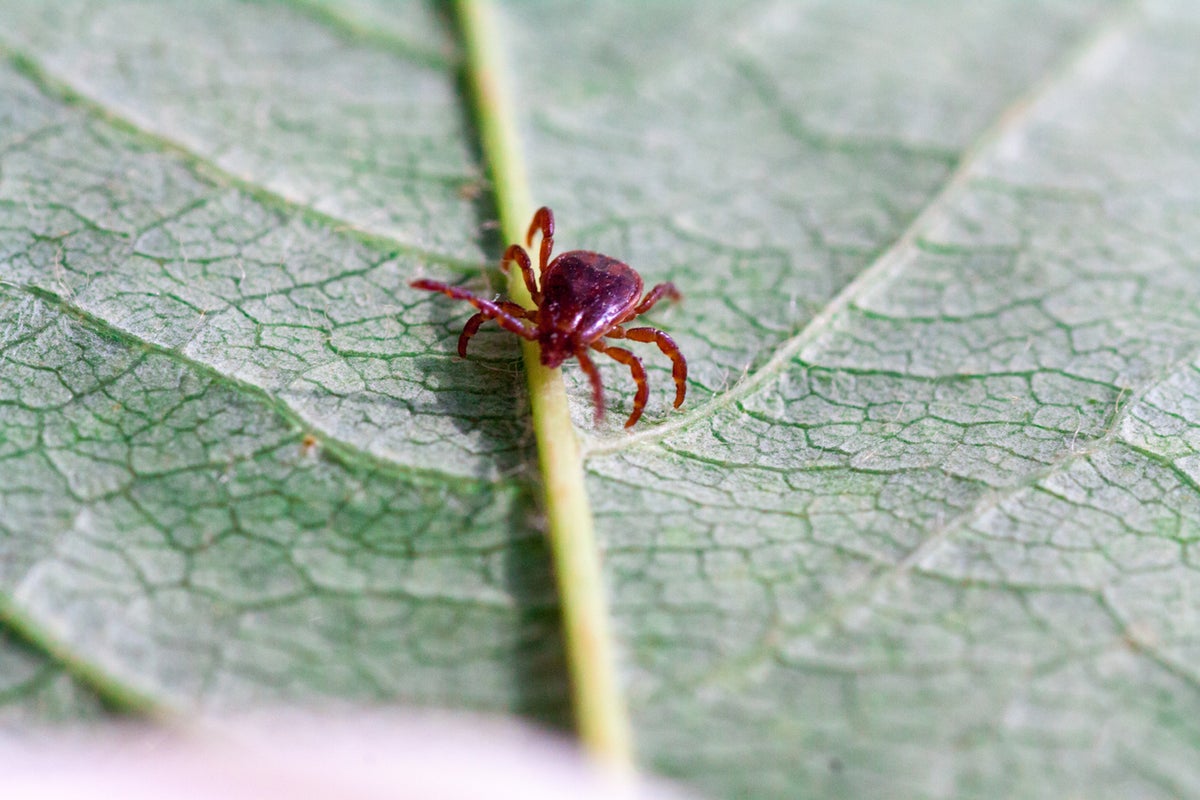
From 2010 to 2022, more than 110,000 suspected cases of alpha-gal syndrome were identified, a syndrome triggered by tick bites.
On Thursday, the Centers for Disease Control and Prevention (CDC) released two new reports, which showed an increase in alpha-gal syndrome figures – with as many as 450,000 people estimated to be impacted by the condition in the United States.
Alpha-gal syndrome is a tick-borne illness that leads to allergic reactions from eating red meat, which includes the meat of cows, deer, pigs or goats. The allergy can be potentially life-threatening.
“Alpha-gal syndrome is an important emerging public health problem, with potentially severe health impacts that can last a lifetime for some patients,” said Dr Ann Carpenter, epidemiologist and lead author of one of the papers.
“It’s critical for clinicians to be aware of AGS so they can properly evaluate, diagnose, and manage their patients and also educate them on tick-bite prevention to protect patients from developing this allergic condition.”
So far, health officials have said they are not aware of any confirmed deaths linked to alpha-gal, but people with the allergy have described the experience and said they were unaware that it may be food related.
“I never connected it with any food because it was hours after eating,” said one patient, Bernadine Heller-Greenman.
Here we take a look at what alpha-gal syndrome is and how tick bites and certain foods can trigger it
What is alpha-gal syndrome (AGS)?
According to the CDC, Alpha-gal syndrome is a serious and “potentially life-threatening allergic condition”. AGS is also known as alpha-gal allergy, red meat allergy, or tick-bite meat allergy.
Alpha-gal can then be transmitted to people through a tick bite and when ticks (usually the lone star tick) feed on mammals, the alpha-gal gets into their saliva.
When the body becomes infected, the body recognises alpha-gal as a foreign invader and produced antibodies that prompt the immune system to become allergic to it. An infected person can become quite sick after consuming something that contains alpha-gal.
What are the symptoms of AGS?
Symptoms are said commonly appear two to six hours after eating meat or dairy products or after being exposed to products that may contain alpha-gal.
AGS reactions will differ from person to person and can range from mild to severe or even life-threatening.
The CDC has said some reactions can include:
• Hives or an itchy rash
• Nausea or vomiting
• Heartburn or indigestion
• Diarrhoea
• Cough, shortness of breath or difficulty breathing
• A drop in blood pressure
• Swelling of the lips, throat tongue or eyelids
• Feeling dizzy or faint
• Severe stomach pain
Can I get AGS from a tick bite?
The CDC has said you can get AGS from tick bites, with evidence suggesting that the syndrome is associated with the bite of a lone star tick in the US, but other kinds of ticks have not been ruled out.
The CDC said: “Other tick species have been connected with the development of AGS in other countries. More research is needed to understand the role ticks play in starting this condition, and why certain people develop AGS.”
What steps can I take to prevent AGS?
Preventing tick bites is the first step you should take as this reduced the chances of developing AGS.
The CDC has advised that when you go outdoors you should:
• Avoid wooded, grassy and bushy areas where ticks may be found.
• Walk in the centre of the trails.
• Treat clothing and gear with tick insect repellent
When you come indoors you should:
• Check your clothes for ticks
• Examine your gear and pets for ticks
• Shower and perform a thorough tick check
What should I do if I have AGS?
The CDC has said AGS should be managed under the care of an allergist or a healthcare provider. As many products have alpha-gal, you will need to work with your doctor to understand which products you should avoid.
Which foods have alpha-gal?
Alpha-gal can be found in mammalian meat such as beef, pork, lamb, venison and rabbit. Some meats may carry more alpha-gal than others, such as the organ meat of mammals, including liver, lung, heart, kidneys, intestines (tripe), sweetbreads, scrapple, and Rocky Mountain or prairie oysters generally contain high amounts of alpha-gal.
Milk and milk-based products also typically contain alpha-gal.
Foods that do not contain alpha-gal include poultry such as chicken, turkey, duck or quail, eggs, fish and seafood such as shrimp, fruits and vegetables.







